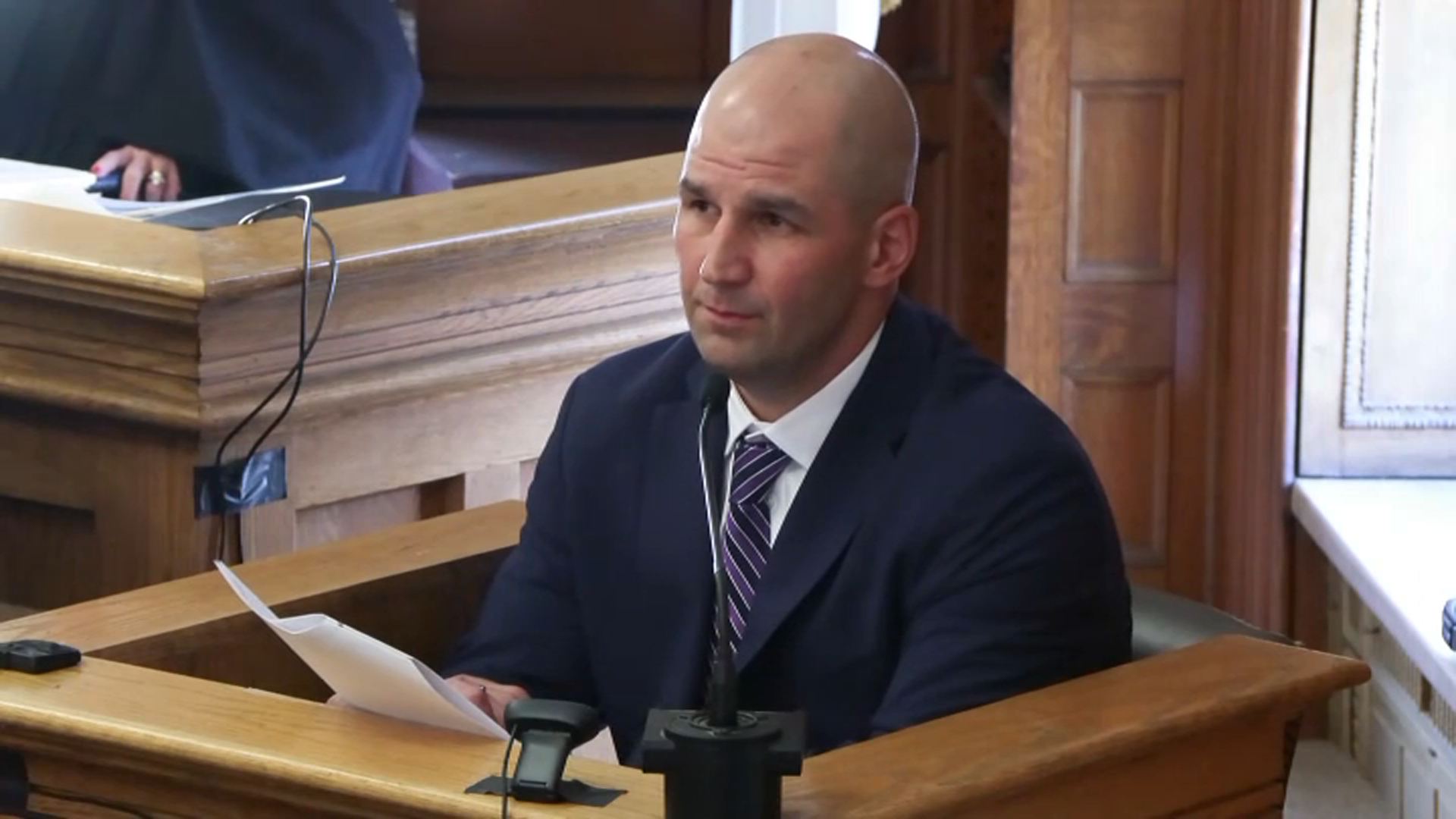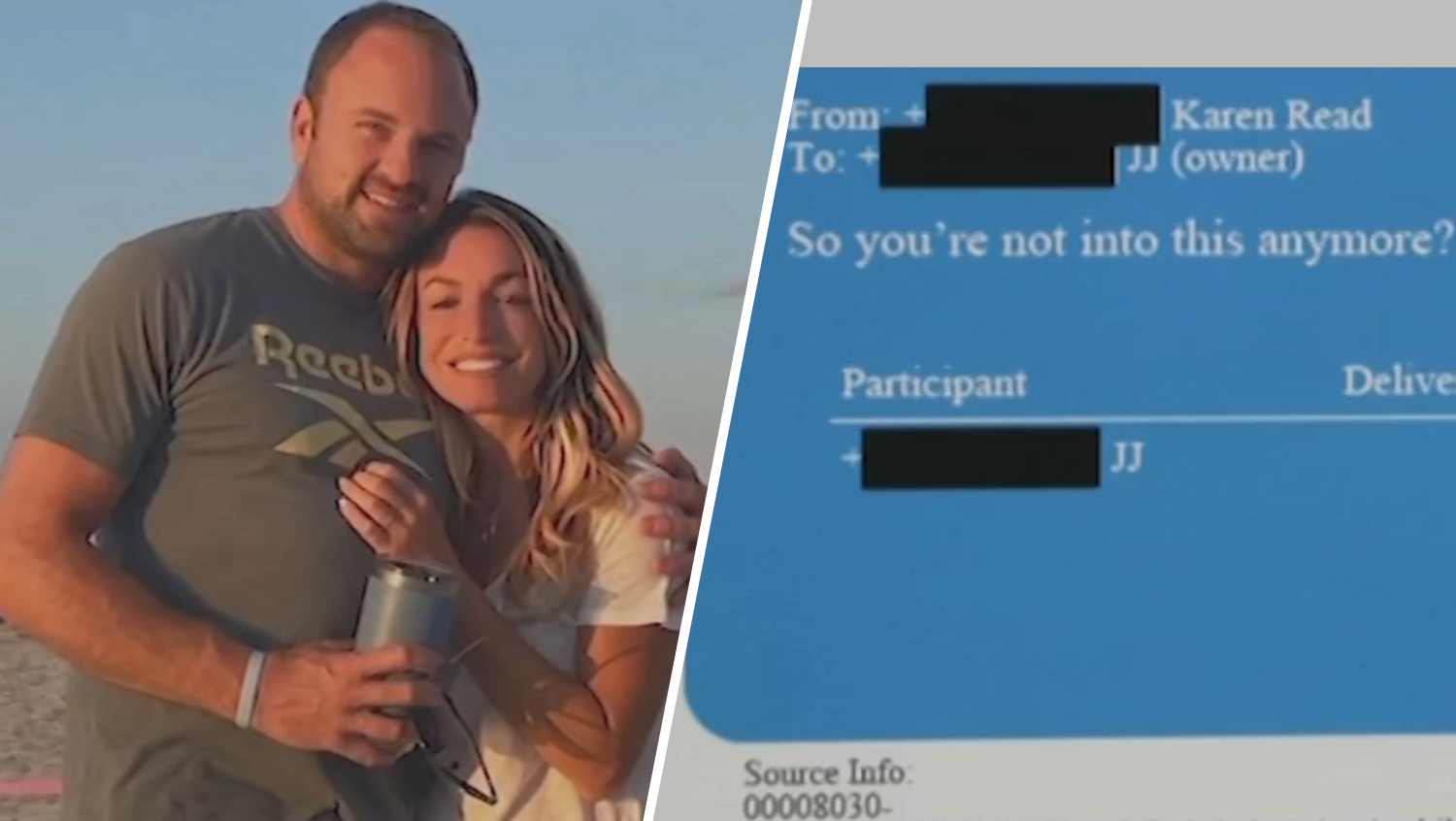The prosecution in the Karen Read murder trial rested its case Friday, and the defense began calling its first witnesses.
Thursday began with a win for the defense, as Judge Beverly Cannone told them they would be able to present limited testimony from three witnesses interviewed Tuesday away from the jury, including an L.A. doctor who says the abrasions on John O’Keefe’s arm were caused by a dog, not tail light pieces, as the prosecution maintains.
STAY IN THE KNOW
Watch NBC10 Boston news for free, 24/7, wherever you are. |
|
Get Boston local news, weather forecasts, lifestyle and entertainment stories to your inbox. Sign up for NBC Boston’s newsletters. |
Read is accused of striking O'Keefe, her Boston police officer boyfriend, with her SUV and leaving him for dead in a snowbank on Fairview Road in Canton back in 2022. She has pleaded not guilty, and her defense argues that she was framed.
Watch the Karen Read trial live on nbcboston.com, NECN, NBC Boston streaming platforms (including Roku, Peacock and Samsung TV) and NBC10 Boston's YouTube page. Every night of the trial at 7 p.m., come back for analysis and more.
Email questions to canton.confidential@nbcuni.com.
Meanwhile, Massachusetts State Police Trooper Nicholas Guarino testified Thursday that data he extracted from O’Keefe’s phone shows it remained where his body was later found on the front lawn at 34 Fairview Road in Canton from 12:25 until 6:15 a.m. on Jan. 29, 2022.
Guarino testified Read called her boyfriend’s phone more than 50 times that morning, leaving eight voicemails, some filled with expletives, that were played for the jury.
Irini Scordi-Bello, the medical examiner who performed O’Keefe’s autopsy, also testified Thursday.
She said that she determined his cause of death to be blunt impact and hypothermia, but could not determine the manner of his death.
Medical examiner concludes her testimony, prosecution rests
Scordi-Bello returned to the stand when testimony resumed Friday morning. Under direct examination, O'Keefe's autopsy photos were shown to jurors.
Under cross-examination by defense attorney Elizabeth Little, the medical examiner was asked if O'Keefe's arm injuries were inconsistent with having been struck by a vehicle at 24 mph.
"I don't know. I am not a reconstruction expert. I am not a biomechanics expert," Scordi-Bello said. "I never personally inspected the car, so I cannot offer an opinion on that."
She also testified that O'Keefe's arm had no significant bruising, and no fractures or broken bones.
Scordi-Bello also said that it's possible that the injuries to O'Keefe's face could have been caused by being punched.
She finished her testimony around 10 a.m. Friday, at which point the prosecution rested its case.
Judge denies motion for directed verdict
Just before 10:30 a.m., following a brief recess, court resumed with defense attorney Alan Jackson asking for a directed verdict of not guilty, a ruling that can be issued by a judge if they determine there is not sufficient evidence for a reasonable jury to find a defendant guilty.
He argued that the prosecution failed to prove its case beyond a reasonable doubt and the court should find Read not guilty without the case going to the jury. He said there must be evidence that Read's vehicle killed O'Keefe, and the prosecution did not provide that or any other medical evidence that proves their case.
"The only evidence that is beofre the court is that the Commonwealth's own medical examiner does not believe this is a homicide, and she went on this morning to say that in her expert opinion, the injuries are not classic pedestrian injuries and they are -- every one of them -- consistent with a physical altercation," Jackson said.
Assistant District Attorney Adam Lally began his argument by saying that "surprisingly," he disagreed with the defense's assertions.
He cited some of the physical evidence, along with testimony from public safety officials about Read's own statements where she said she hit O'Keefe with her vehicle, and asked that the motion be denied.
Cannone, however, said she was satisfied that the prosecution had met its burden and immediately denied the defense's motion.
Defense calls its first witness
After the judge's ruling, the defense called its first witness, Brian Loughran, the plow driver responsible for plowing Fairview Road on the day of O'Keefe's death.
He began by testifying about how he is familiar with many members of the Albert family from his time living and working in town and attending school there.
Loughran then testified about his plow route that night, including the Albert home on Fairview. He said when he drove by the home around 2:45 a.m. he saw nothing on the lawn.
Asked how much of the lawn was lit, he said all of it was. Asked if he saw a body there, he said no.
Loughran said he next passed by 34 Fairview Road between 3:15-3:20 a.m. At that time, he saw a Ford Edge parked on the side of the road in front of the home by the flagpole. He said he should have notified public works that a vehicle was parked on the road during a snowstorm, but he didn't because he was being courteous to the Albert family. Again, he said he saw nothing on the front lawn of the home.
The defense finished with Loughran and Lally began cross examining him around 11:15 a.m.
Dog bite expert testifies
The second defense witness was forensic pathologist Dr. Marie Russell, an expert on dog bites who has examined between 500-1,000 dog bites. The prosecution had sought to keep this witness from testifying, but the judge allowed her to take the stand.
She was asked specifically about the injuries to O'Keefe's right arm, a photo of which was displayed on a TV screen.
"I believe that these injuries were sustained by an animal," Russell said, "possibly a large dog, because of the pattern of the injuries." She said the injuries are consistent with teeth or claw marks.
During cross examination, Lally asked Russell how she found out about the case. She said she first learned about it when she read an article about the case in The Boston Globe last month.
Russell concluded her testimony just before the lunch break.
Digital forensics expert takes the stand
Following the lunch break, digital forensics expert Richard Green took the stand. The defense team hired him to examine O'Keefe's location data from his cell phone.
He testified specifically about Apple Health data for O'Keefe from Jan. 29, 2022, showing that he traveled 87.4 meters and took 80 steps between 12:21 and 12:24 a.m. It also showed he was on three different flights between 12:22 and 12:24 a.m.
Green said the Waze app, which prosecutors have used in placing O'Keefe and Read on their way to the location where O'Keefe died, was off by three minutes.
He later testified that a Google search made my trial witness Jennifer McCabe, "hos long to die in cold," was first made at 2:27 a.m. The timing of the search has been a crux of the case — a witness for the prosecution testified that it was likely made after O'Keefe's body was found and reported to police, around 6 a.m.
When Lally had a chance question Green, the forensics expert insisted that the 2:27 a.m. search couldn't have been made at 6 a.m., based on the data.
But Green did acknowledge that testimony he gave in court contradicted what he'd previously indicated in an affidavit. Green said he had changed his mind after revisiting the data.
The jury was dismissed for the weekend at about 3:15 p.m., and Cannone told them, "We are on track, you will get this case next week for your deliberations."
After court, the defense told NBC10 Boston that they expect to call three more witnesses Monday, then give their closing arguments Tuesday.




